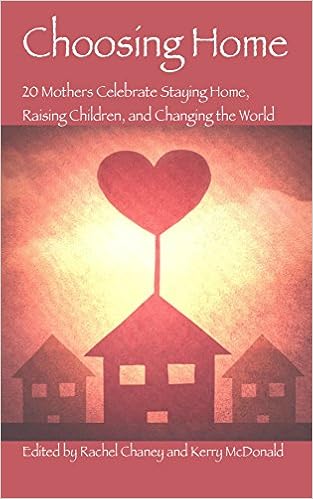Friday, May 13, 2016
More Than Learning
In the push to introduce academics and especially reading to children at increasingly younger ages, and expect proficiency earlier than ever before, we may be facilitating a sort of apathetic literacy.
As assistant professor of education, Daphna Bassok, and her colleagues at the University of Virginia discovered: In 1998, 31% of teachers believed that children should learn to read while in kindergarten. In 2010, that number was 80%. When children are forced to do something, coerced before they are ready or interested, they may learn to do it (with varying degrees of mastery), but will they love to do it?
I want my children not just to learn to read, but to love to read; not just to learn math, but to love math; not just to learn to play music, but to love to play it.
When any of us learn under coercion, because someone tells us we must, we may learn the material--and a few of us lucky ones may even grow to love it. But when we learn because of our natural drive to discover and explore and gain proficiency in the tools of our culture, we learn and love to learn and seek to learn more.
By allowing our children's innate curiosity to guide their learning, to determine what they will learn, when and how, we facilitate a deeper, richer learning. We watch our children learn to read because they want to read and recognize it as an important tool in their culture, whether they are 4 or 10. We watch our children learn to play a musical instrument, not because we coerce them to practice, but because they desire to make music. We watch our children learn math and analytics because they want to, not because they must.
Some parents and educators may shake their heads at this idea, at the suggestion that a child will willingly learn to read, or do math, or play a musical instrument without compulsion. Our culture is currently so focused on top-down, adult-driven instruction for children that we often cannot even comprehend another way. As educator and author, John Holt, writes in How Children Learn: "We like to say that we send children to school to teach them to think. What we do, all too often, is to teach them to think badly, to give up a natural and powerful way of thinking in favor of a method that does not work well for them and that we rarely use ourselves."
So much of embracing natural learning relies on trust: trusting our children and ourselves and the instinctual, self-educative capacity of humans. This is challenging, as Holt goes on to explain in How Children Learn, because "to trust children we must trust ourselves--and most of us were taught as children that we could not be trusted. And so we go on treating children as we ourselves were treated, calling this 'reality,' or saying bitterly, 'If I could put up with it, they can too.'"
If we take the leap, regain our trust in childhood and the remarkable human instinct to discover and do, we reveal an entirely different way of learning and growing. A natural way. A powerful way. An everlasting way. A way that fosters both mastery and love of a particular subject and creates life-long passions.
Wouldn't we all want the freedom to learn that way?
Subscribe to:
Post Comments (Atom)
























I love this!!
ReplyDelete"Some parents may shake their heads at this idea, at the suggestion that a child will willingly learn to read,"
ReplyDeleteThere is tons of SCIENCE that confirms that my child would have never learned to read without intervention. She is dyslexic and her brain just doesn't process language the way the rest of us do.